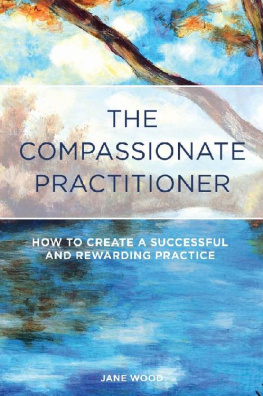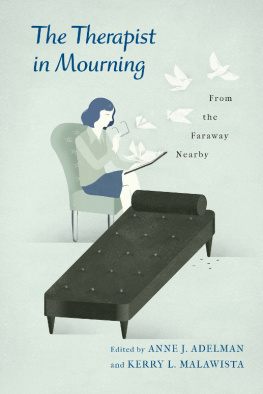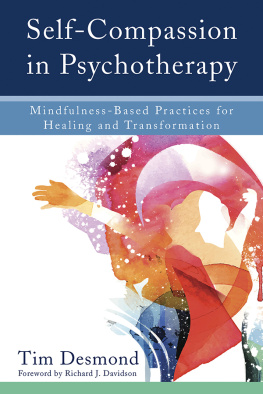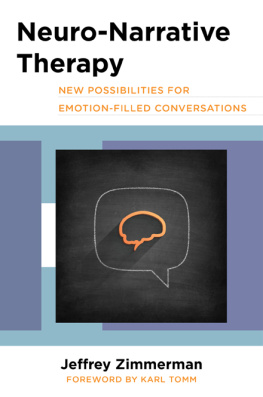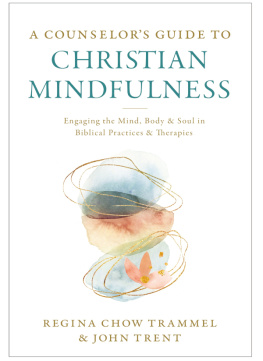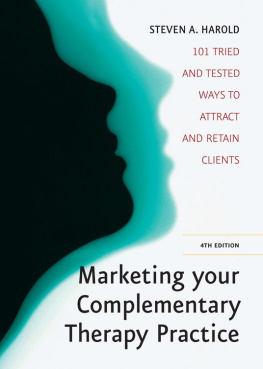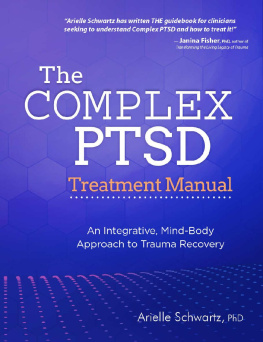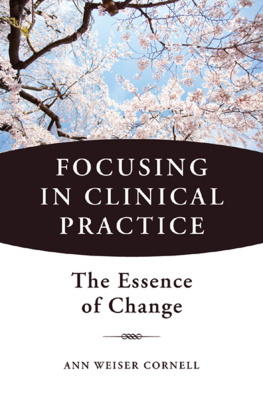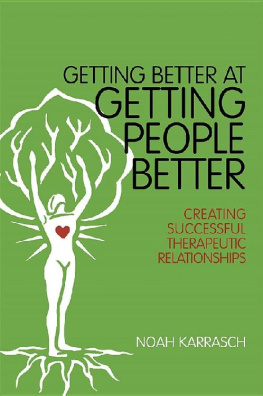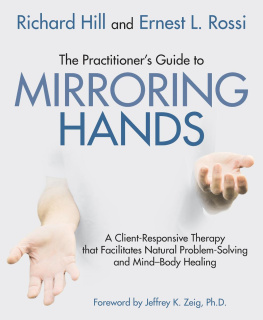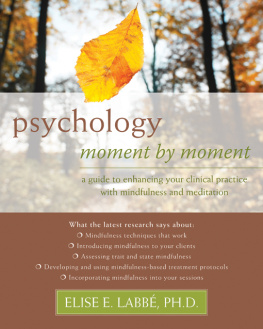ACKNOWLEDGEMENTS
My thanks and gratitude to everyone who has encouraged me to write this book, and especially to those who have given me their suggestions, feedback and personal experiences. Particular thanks go to Mike and Linda for their proofreading and to Dave for his thought-provoking comments. It has been a privilege to teach and supervise the many practitioners who have contributed to my understanding of the practitionerpatient relationship.
My loving appreciation to my family for their encouragement, technical support and proofreading.
Chapter 1
THE POWER OF POSITIVE THINKING
When I first started practice in 1990, advertising meant renting space in the local newspaper or alternative health magazine, putting your business card in the newsagents window or giving talks. Since then the expansion of technology has opened up ever-increasing methods of getting yourself known. I havent written about the new technology it would be out of date before the book is published but I do suggest it takes more than advertising and networking to be successful. It is your positive attitude that will bring you patients, job satisfaction and success.
Many alternative practitioners have a negative attitude about success in their practice. They graduate with optimism, but soon enough their inner voice is telling them that it is difficult, they wont make enough money, they havent got enough time, they cant find a good clinic room and so on. They begin to hope for the best but prepare for the worst; unfortunately these two cancel each other out.
One of the best ways to change your attitude is by working with the self-reflective journal. This is a handwritten or on-screen journal that is kept specifically for is dedicated to keeping a journal.
FOCUSING ON YOUR SUCCESS
Quite early on in my career as teacher and supervisor, I recognized that many adult learners are extremely good at listing their weaknesses and failures but find it difficult to acknowledge or appreciate their success. It is as if success is only deemed noteworthy if it is A-grade or higher. For those who are studying to enter the caring professions, there are further pitfalls waiting. Students can easily find themselves measuring their success by the well-being of their patient or client rather than also looking inward and congratulating themselves on the good work they have done.
The human brain has a natural tendency to look at the negative aspects first. Martin Seligman (2011), writing in Flourish, a New Understanding of Happiness and Well-Being And How to Achieve Them , explains:
For sound evolutionary reasons, most of us are not nearly as good at dwelling on good events as we are at analyzing bad events. Those of our ancestors who spent a lot of time basking in the sunshine of good events, when they should have been preparing for disaster, did not survive the Ice Age. So to overcome our brains natural catastrophic bent, we need to work on and practise this skill of thinking about what went well. (p.33)
In Britain, thinking or talking about personal success is often avoided as we have been taught that it is selfish, boastful, egocentric or just bad manners. Whilst I agree that continuously talking about your own success to others could be considered all of these, acknowledging a job well done to yourself or to a critical friend can be affirming and satisfying. A critical friend is someone like a close colleague, who understands your work and you can trust. An agreement is set up between you so you can challenge and support each other.
A student arranged to do some online supervision with me. She had low self-confidence and often believed she was not good enough as a practitioner. She had very high standards and expected a lot of herself. I suggested that when she was writing in her journal, she included the two reflective questions, What did I do well? and What didnt I do so well? I told her that it is important to congratulate yourself on any success you have, however small. If you celebrate what you have done well as a practitioner you will be more likely to repeat your good or effective behaviour, and over time you will consolidate good practice. If you only reflect on what you didnt do so well, you will lower your self-confidence.
The student began working this way, and in her self-reflections started to include phrases such as, I acknowledge my ability to, Or, I am consciously aware of accepting myself. I was pleased with this beginning, but I felt that her comments were rather lukewarm and encouraged her to be more enthusiastic. In the following reflection, she experimented by telling herself that she was proud of her work with a difficult patient in clinic. She found it was such an unusual experience that she questioned why she should be uncomfortable with self-praise. The answer came easily: self-praise had elements of arrogance and ego, and as a child she had been taught that boasting was not nice. She didnt want to be seen as arrogant or boastful.
I explained to her that there is a difference between boasting in front of others, and congratulating yourself in a reflective journal or in the privacy of your thoughts, for a piece of work that has been done well. The former is done in order to gain rank or status above others. The latter is done privately as part of a balanced assessment of your experience.
A key moment for me was when I ran a two-day workshop with my Japanese students on the practitionerpatient relationship. As we approached the last segment of the weekend, I spontaneously decided to end the workshop with a self-appreciation session. I sat all of the participants in a circle, and asked them to pass around the microphone, so that one by one they could state what they had done well over the weekend and what they had not done so well. For the first five or six people, this appeared excruciating. They were willing enough to blame themselves, but far too polite to praise themselves in public. In some cases I had to enlist the help of those that had worked with them in order to find something praiseworthy. Gradually, as we went around the circle, the later students began to loosen up, dared to be honest and even raised sympathetic laughter as they admitted they hadnt expected to do so well.
After this I challenged all my students to write both What went well and What didnt go so well in their reflective journals. My decision was at first instinctive but gradually I built up a rationale, described here in my book, Transformation through Journal Writing :
I am a strong advocate of including both positives and negatives in a journal. The self-reflective journal will be a necessary recipient of problems, dilemmas, upsets and failures. It is through working on these issues that a writer can begin to understand themselves and initiate change. If these issues are not brought into the journal, the writer is being superficial and will not claim the reward of self-development. However, if the journal writer is continuously being self-critical it will lower their self-esteem If strengths and weaknesses are both given page space in the journal, the writer feels a sense of balance. (Wood 2012, p.72)
Writing about your successes helps you identify your strengths, boosts your self-confidence, and encourages you to repeat successful behaviour. The self-reflective journal should be something that supports you as well as being a learning aid. It should contain enough positives so that you enjoy rereading it. Beyond the description of what went well, the same spirit of inquiry can be brought to a positive issue as a negative issue. If something went well, how do you feel about it? What was your attitude of mind leading up to the positive outcome? Would there be value in repeating this experience in other contexts? (Wood 2012, p.73)
Concentrating on your success does not mean being blind to your faults, nor does it mean waiting for a major breakthrough before you can celebrate. It means acknowledging fairly what you did well, however small it was. It is human nature to notice what mistakes you made and where you went wrong, and these will need working on so that you dont repeat them. Just remember it is also human nature that being told off makes you feel bad and being praised makes you feel good. So praise yourself for the little things, such as making the patient feel comfortable, ordering the supplies you forgot last time, cleaning your desk, doing your filing or getting an appreciative thank you after a treatment.
Next page
